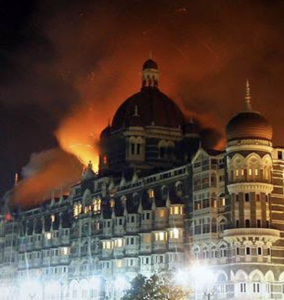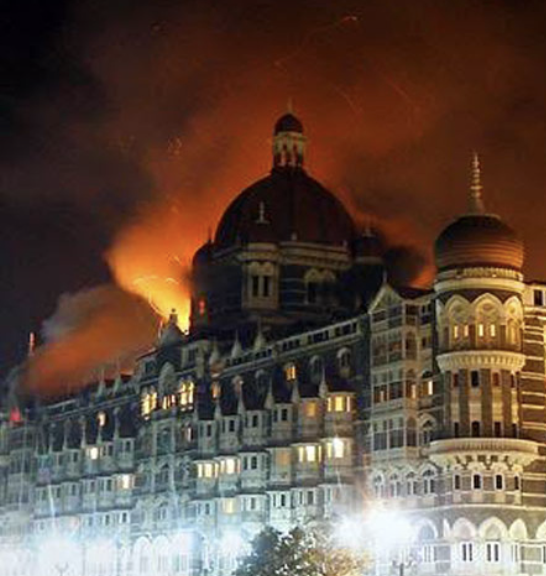Washington, Aug 18 : Tahawwur Rana, a Canadian businessman of Pakistani descent, had requested a petition of habeas corpus from a US court, but it was denied. This opened the door for US Secretary of State Antony Blinken to certify his extradition to India, where he is wanted for his role in the 2008 Mumbai terror attacks.
A US judge authorised Rana’s extradition to India in May, marking a significant success for India in its campaign to bring the perpetrators of the 26/11 Mumbai attacks to justice. Rana, who is presently being held at the Metropolitan Detention Centre in Los Angeles, filed a “writ of habeas corpus” in June of this year to challenge the court’s decision to grant the US government’s request that the suspects in the 2008 Mumbai terror attacks be extradited to India.
Judge Dale S Fischer of the Central District of California ruled in his ruling dated August 10 that “the court has denied Tahawwur Rana’s petition for writ of habeas corpus by a separate order.”Rana, however, has appealed the decision and asked that his extradition to India be halted until his appeal is considered by the Ninth Circuit Court.
Rana, who is accused of participating in the Mumbai attacks, is known to have ties to the terrorist David Coleman Headley, a Pakistani-American who was one of the principal organisers of the 26/11 Mumbai attacks.
According to Judge Fischer’s ruling, Rana has only presented two fundamental reasons in the writ.He first argues that he cannot be extradited in accordance with the terms of the treaty because India intends to prosecute him for the same crimes for which he was accused and found not guilty in a US court. The judge noted that he also claims that the government has not proven that there is reason to suspect that Rana committed the Indian offences for which he is anticipated to go on trial.
He refuted both of Rana’s claims.
Given that there is some competent evidence supporting the judgement, even if (David) Headley’s testimony were the only foundation for the probable cause finding, it would be sufficient for the purposes of the habeas review. Rana’s request for a writ of habeas corpus is rejected for the reasons mentioned above, the judge ruled.
Following Judge Fischer’s directive, Rana’s two solicitors, Patrick Blegen and John D. Cline, appealed the order made on August 10, 2023, which denied his petition for a writ of habeas corpus to the United States Court of Appeals for the Ninth Circuit. Blegen has appealed the court’s decision to refuse his request for a writ of habeas corpus by submitting a petition “for a stay of extradition pending his appeal” to the United States Court of Appeals for the Ninth Circuit.”As stated in the accompanying memorandum, petitioner submits that a stay of extradition pending appeal is appropriate because he has made a compelling argument that he is likely to succeed on the merits of his non-bis in idem claim; he will suffer irreparable harm if he is extradited, possibly receiving the death penalty; a stay pending appeal will not substantially harm the government; and the public interest favours a thorough review of Rana’s .“As set forth in the accompanying memorandum, petitioner submits that a stay of extradition pending appeal is appropriate because he has made a strong showing that he is likely to succeed on the merits of his non-bis in idem claim; he will suffer irreparable harm if he is extradited, potentially including the death penalty; a stay pending appeal will not substantially injure the government; and the public interest favours a full review of Rana’s non-bis claim before he is sent to a country that seeks to execute him,” Rana’s attorney wrote on August 14.The Biden administration urged the court to reject Rana’s petition for a writ of habeas corpus in June.
“The United States respectfully requests that the court deny Rana’s petition for a writ of habeas corpus,” stated E Martin Estrada, US attorney for the Central District of California, in his petition submitted before the US District Court for the Central District of California.On June 10, 2020, India lodged a complaint requesting Rana’s temporary arrest with a view to extradition. His extradition to India was supported and approved by the Biden administration.
Rana contested his extradition by the Indian government by submitting a writ of habeas corpus through his lawyer.
In two ways, Rana’s extradition would be against the terms of the extradition agreement between the United States and India, according to his lawyers.First, Rana has already been tried and found not guilty of charges stemming from the same behaviour for which India intends to prosecute him in the Northern District of Illinois.
According to him, extradition is consequently prohibited by Treaty Article 6(1), which states that “extradition shall not be granted when the person sought has been convicted or acquitted in the Requested State for the offence for which extradition is requested.”Second, the evidence provided by the Government of India, which mostly consisted of transcripts and exhibits from Rana’s trial in the Northern District of Illinois, did not demonstrate that there was sufficient reason to believe that he committed the crimes for which he was accused. Accordingly, the extradition request from the Indian government does not comply with Article 9.3(c) of the Treaty, according to the lawyer, who also stated that the court should award the writ of habeas corpus, reject extradition, and order Rana’s release.
The US government has demanded that Rana be returned to India, though.The US attorney claimed that Rana’s arguments regarding the legitimacy of his firm in Mumbai are unfounded in his statement to the US Court on June 23.
The claim made by Rana that the Mumbai office engaged in legal business activity is not supported by the evidence, but even if it had, doing so would not exclude the conclusion that Rana’s company also operated as a cover for Headley’s terrorist-related activities in Mumbai.”Rana’s assertions concerning who provided funding for the Mumbai office obviously had nothing to do with whether Rana was aware of and approved of Headley’s actions. The evidence shows that neither Rana nor Headley extended the commercial lease, which was due to expire about two weeks prior to the beginning of the Mumbai attacks, even if Rana had intended to continue conducting business in Mumbai, Estrada contended.
The National Investigation Agency (NIA) of India is looking into Rana’s involvement in the terrorist assaults of the Pakistan-based Lashkar-e-Taiba organisation on November 26, 2001. According to the NIA, it is prepared to start the process of bringing him to India through diplomatic channels. The 166 people who died in the 2008 Mumbai terror attacks included six Americans. Ten Pakistani terrorists besieged Mumbai for more than 60 hours while murdering citizens at significant and well-known sites.



